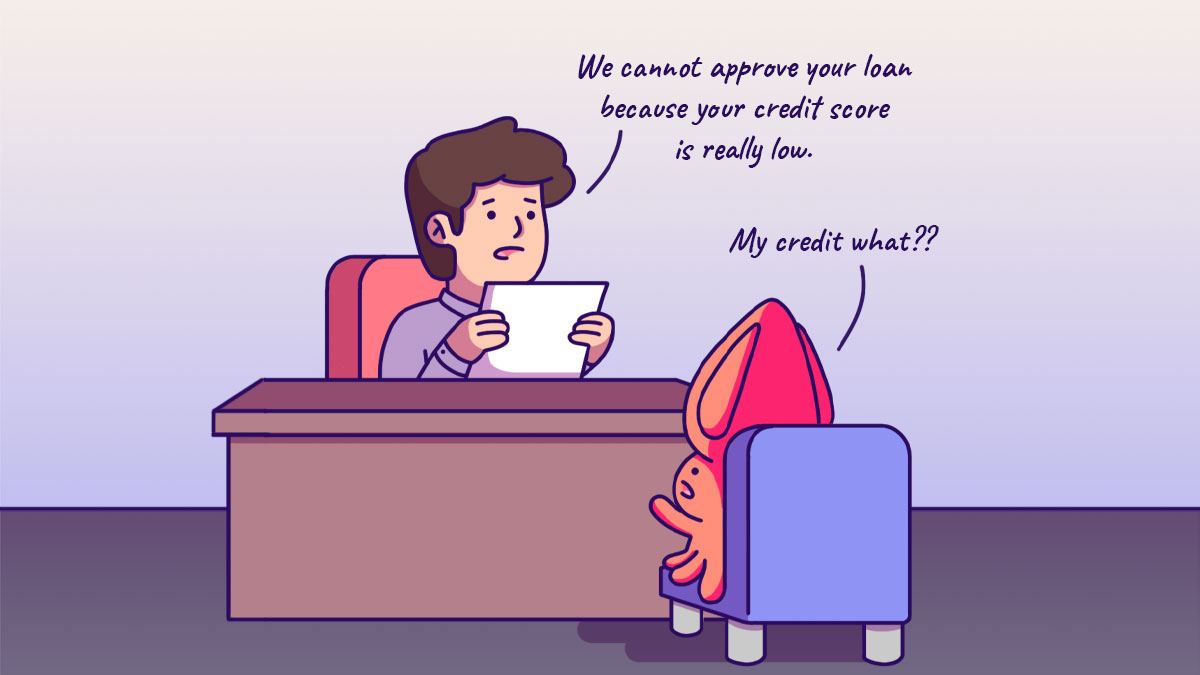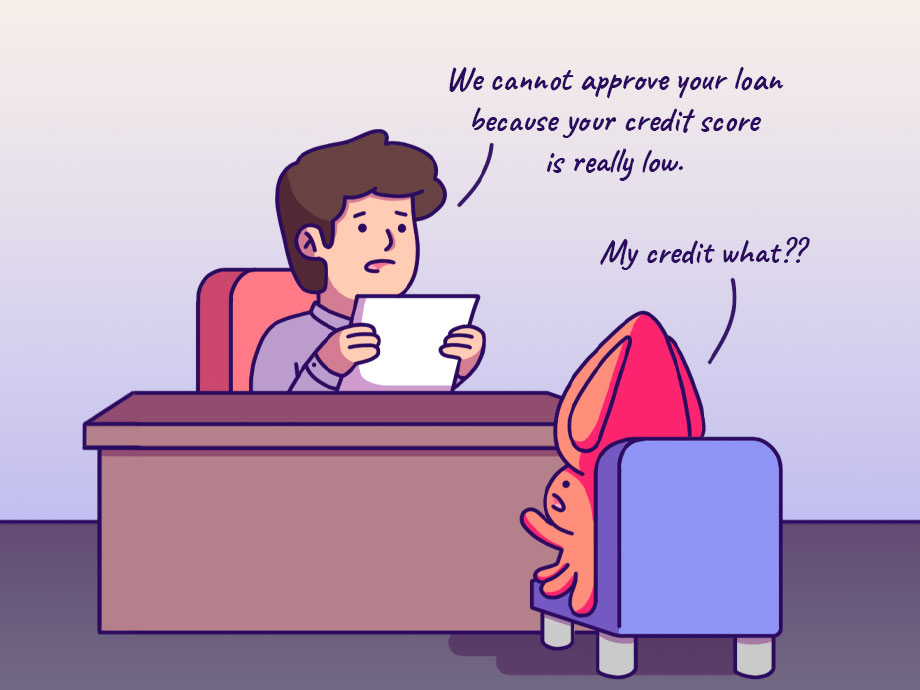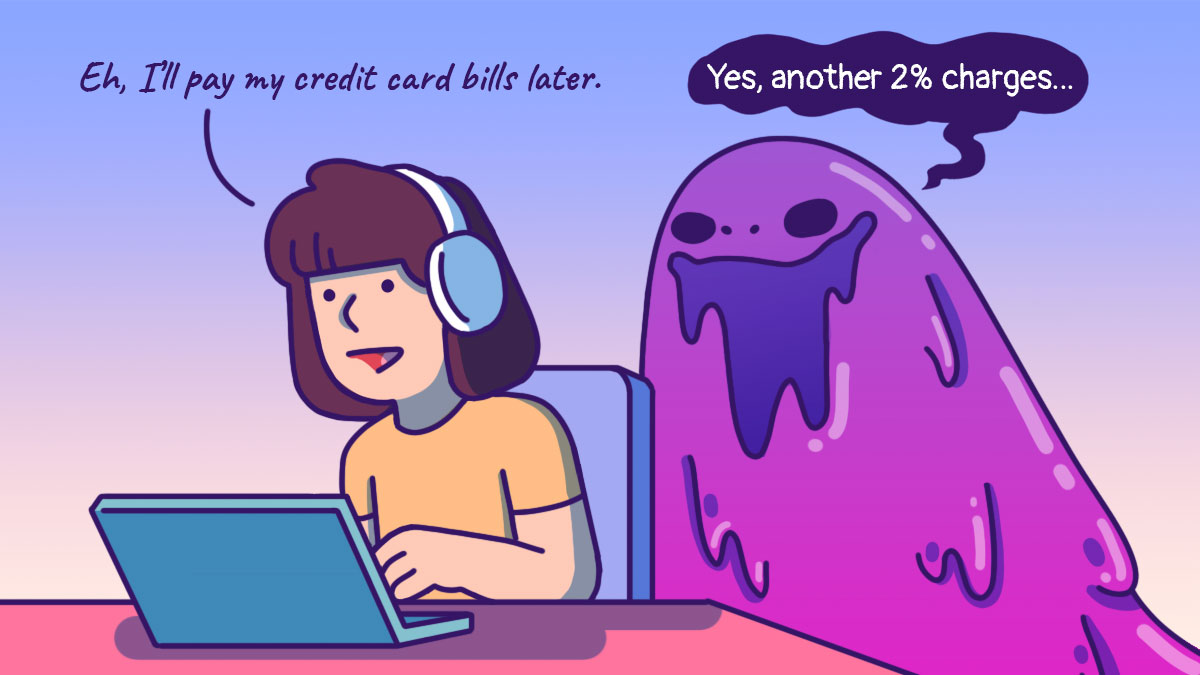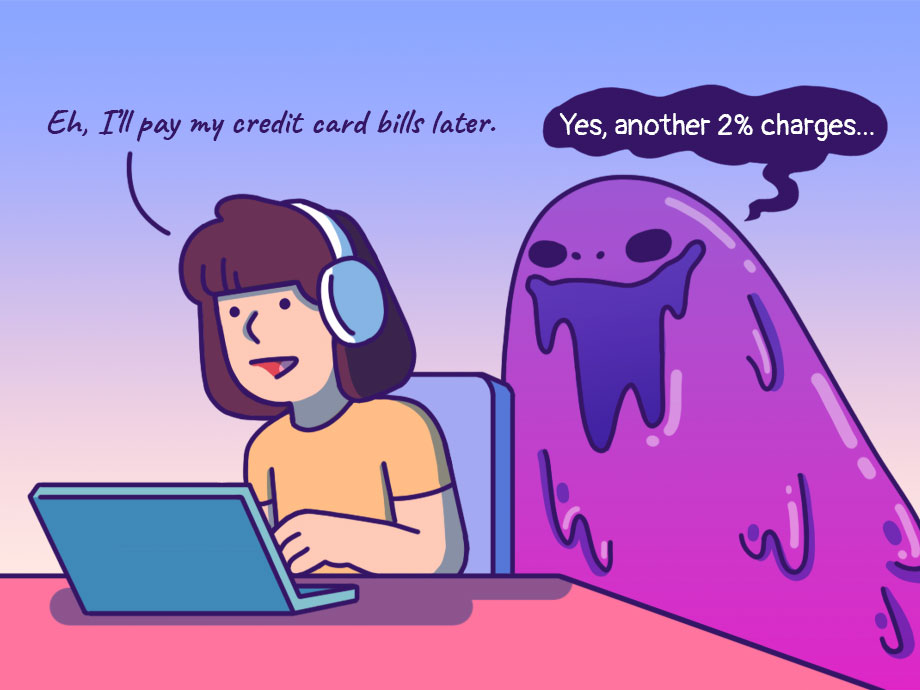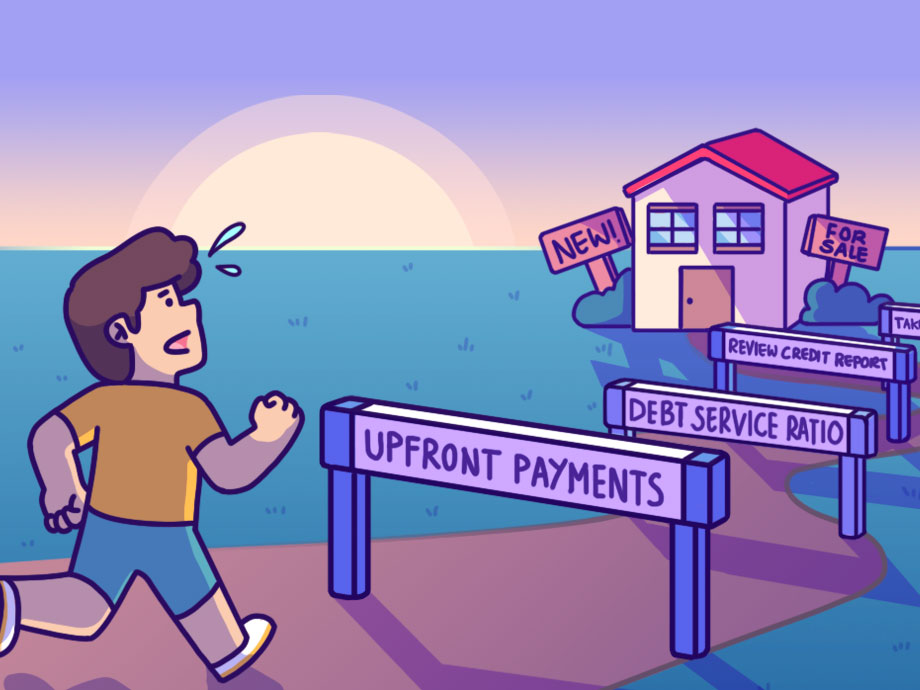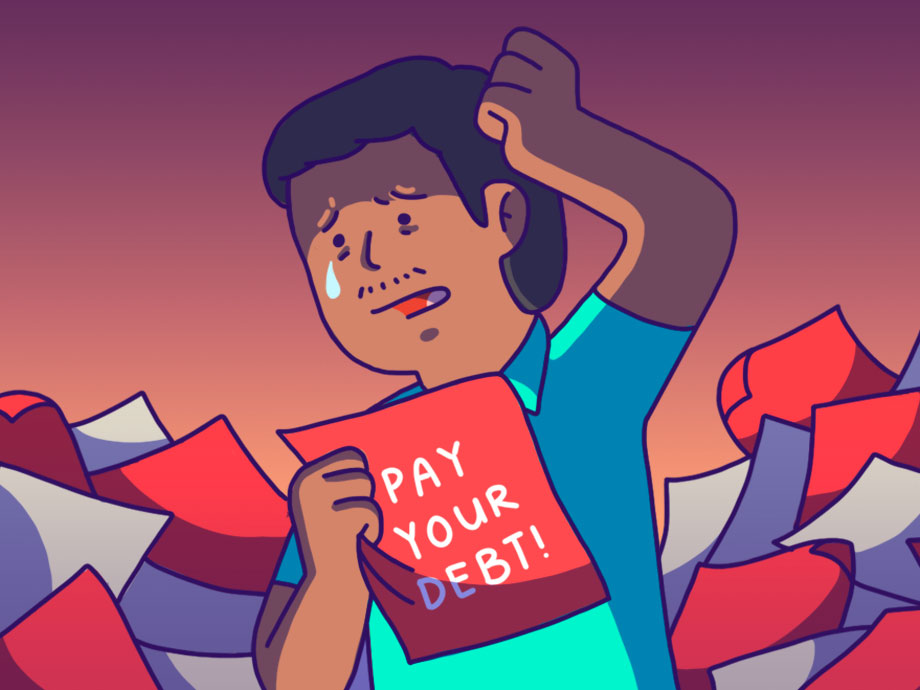Financial Planning | Managing Debt | Personal Finance | Article
What Is Personal Bankruptcy and How Does It Affect Someone?
by Ooi May Sim | 22 Sep 2022
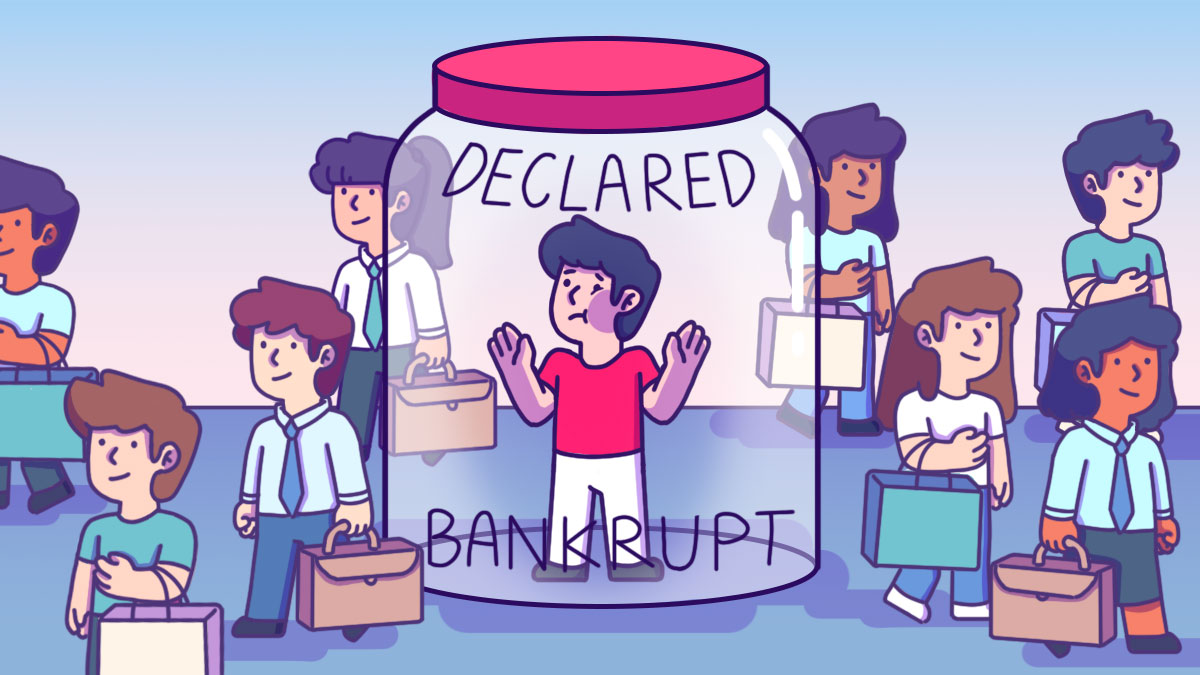
No one thinks they’ll ever go bankrupt. But if you’re not careful with your spending and take on more debt than you can afford, you may be declared bankrupt if you’re unable to repay your debts. While it may seem like an extreme situation that only a few people get into, national data shows that bankruptcy is still a common occurrence in Malaysia.
In the first half of 2022 alone, the Malaysian Department of Insolvency (MDI) reported that 3,165 people were declared bankrupt. That is equivalent to 17 people every day! This brings the total number of bankruptcies in the country to 274,869 (as of June 2022).
More concerning is that young people who are just starting their adult life make up a significant portion of people being declared bankrupt – 21.39% of 46,603 people declared bankrupt from 2018 to June 2022 were aged 24 to 35, and 240 individuals were younger than 25.
These numbers are especially frightening when you consider that the bankruptcy threshold has been raised twice in the past six years. In 2016, the threshold for debt was increased to RM50,000, from RM30,000. Then in 2020, the government doubled the minimum threshold to RM100,000. This means that those who have been declared bankrupt in the last 2 years have accumulated debt of at least RM100,000.
Related
What does it mean to be declared bankrupt?
Bankruptcy is a legal term and differs from just being broke. You can only be declared bankrupt by a court order, either by a creditor’s petition or voluntarily, if you seek a court order through a debtor’s petition.
A creditor’s petition is when a debtor owes a creditor (person or institution such as a bank) a minimum of RM100,000 and are unable to repay this debt; the creditor can commence bankruptcy proceedings against them.
A debtor’s petition, however, comes from the person who is in debt, and thus, is an act of bankruptcy itself.
According to the MDI, a debtor declares bankruptcy to protect himself from creditors’ claims that he knows he cannot satisfy. Unlike a creditor’s petition, there is no requirement for a minimum amount of debt owed before a debtor’s petition can be presented. After a debtor’s petition is presented, it cannot be withdrawn without the leave of court.
Being declared bankrupt has serious consequences to your finances, employability, and ability to travel, thus it is often used as a last resort action by creditors to recoup losses and by debtors who are absolutely unable to repay their debt.
What happens when you are declared bankrupt?
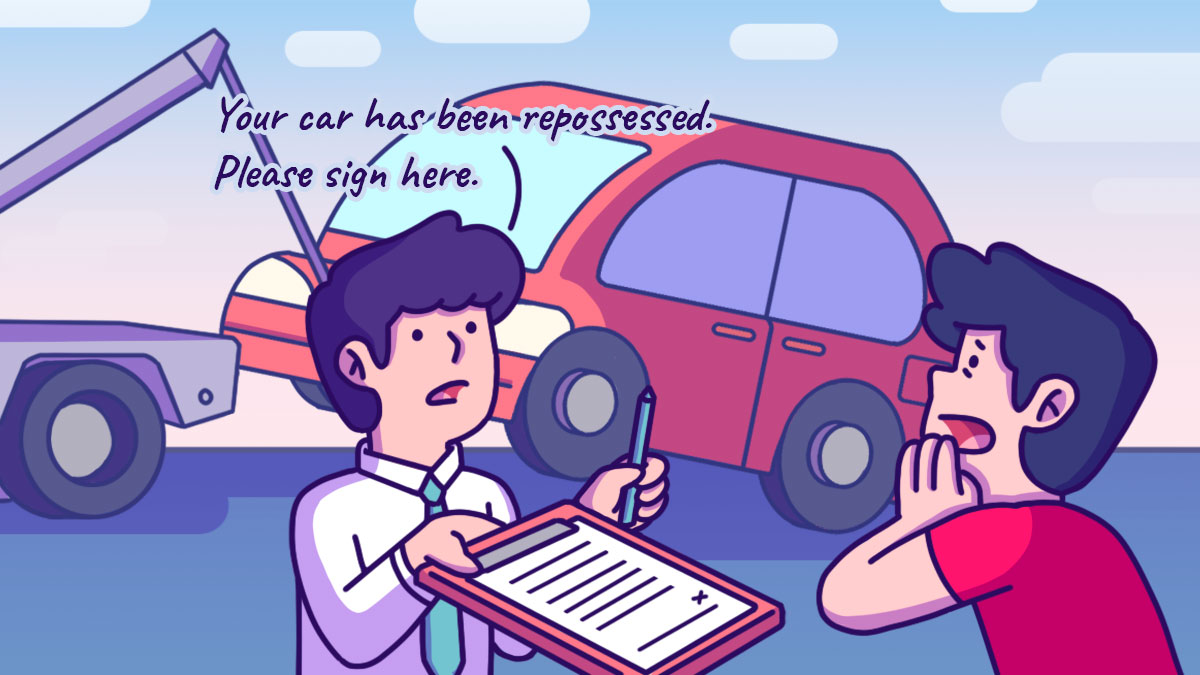
There are a lot of consequences and restrictions imposed on someone who is declared bankrupt such as:
1. The Director General of Insolvency (DGI) will seize your assets and monitor your finances
All your assets will be seized and placed under the administration of the DGI, who will manage it to repay your outstanding debts. The DGI can sell your assets (such as properties and cars) and distribute the earnings amongst creditors.
The DGI can also use a percentage of your monthly income to settle your debt.
On top of that, your finances will be monitored, and you are required to submit an account of all your income and expenses to the DGI every six months.
A bankrupt is not allowed to make direct payment to creditors. All payments must be made through the DGI.
2. Travel ban
A bankrupt cannot travel overseas without written permission from the DGI or court.
3. Limited financial freedom
Your existing bank accounts will be deactivated, and all transactions will be barred. If you want to open a new bank account or continue using an existing account for reasons such as crediting your salary, you have to get permission from the DGI.
Plus, to ensure you don’t overspend, you are not allowed to spend more than RM1,000 on your credit card or obtain credit over that amount from any creditor.
4. Restrictions on employment
You won’t be able to work in professions with a professional association or licensing authority that restrict employment of bankrupts such as being employed as a lawyer, accountant, doctor, and quantity surveyor.
You also can’t hold certain positions in statutory bodies, registered societies or organisations.
If you are looking at a career in politics, we’ve got some bad news – as a bankrupt, you are not allowed to be a Member of Parliament/Member of State Legislative Assembly and hold public office.
5. Need DGI permission on employment
You must send a written application to the DGI to support your current or future employment along with a description of your job scope within the organisation and your pay slip. If the DGI grants you permission, they may impose conditions that you have to comply with.
6. Prohibited from entrepreneurship
A bankrupt cannot act as a director of any company, and is not allowed to own any business, alone or in partnership.
Failing to comply with any of these conditions and restrictions can be considered contempt of court which is punishable with imprisonment.
Related
How can you avoid going bankrupt?
According to MDI statistics, among the main causes for bankruptcy (from 2018 to June 2022) were personal loans (41.95%), hire purchase or car loans (14.76%), business loans (13.62%), housing loans (9.54%) and credit card debt (8.3%).
As is evident from these statistics, many people are declared bankrupt because they take on loans that they are unable to pay back. To avoid becoming a statistic, create a budget and calculate whether you can afford the monthly payments on your loans before taking on any loans. Don’t forget to factor in interest, processing fees, legal charges, and the like.
It’s also not a surprise that the majority of bankruptcy cases stem from personal loans as they’re often used not to buy assets like houses or cars but to fund large lifestyle expenses such as a wedding, home renovation, or vacation. We’re not saying that you shouldn’t spend money on your lifestyle goals but good personal finance practice prescribes that you save up for these large expenses instead of using debt to fund it.
The golden rule is to always spend below your means. That means getting a vehicle, phone and furniture that is within your budget.
And if you have a hard time sticking to a budget, it’s wise to hold off on getting a credit card until you are better at controlling your spending. Not owning a credit card forces you to use money you already have, rather than spend money you don’t have and put it on credit.
Lastly, you should always have an emergency fund as these savings can help you weather an unfortunate incident. Events such as an illness or injury can cause a strain on your finances so having money stashed away, that can be accessed quickly, is crucial to your financial wellness, and can keep you out of debt and far away from the possibility of bankruptcy.



